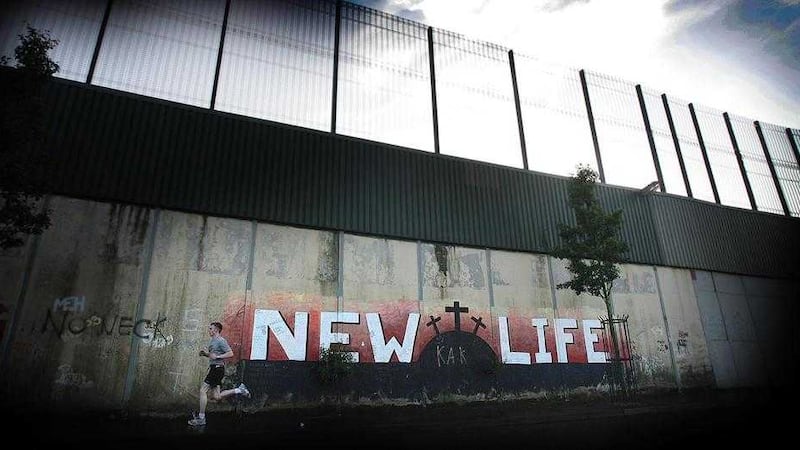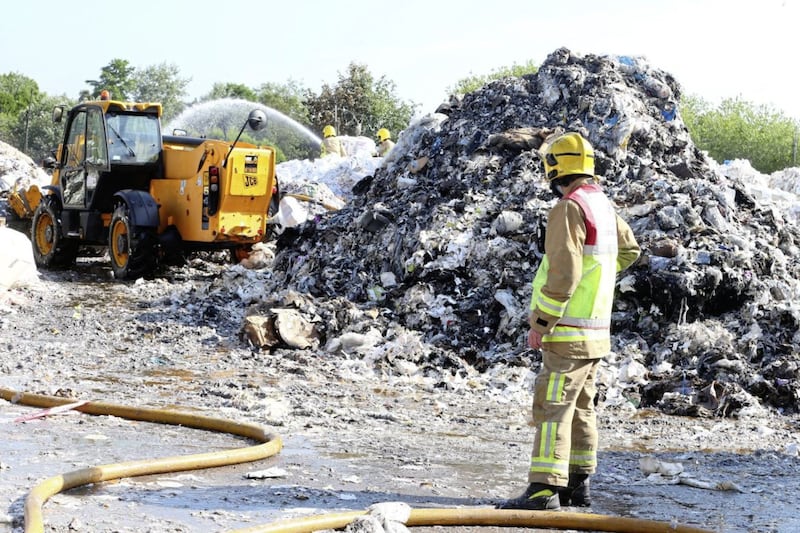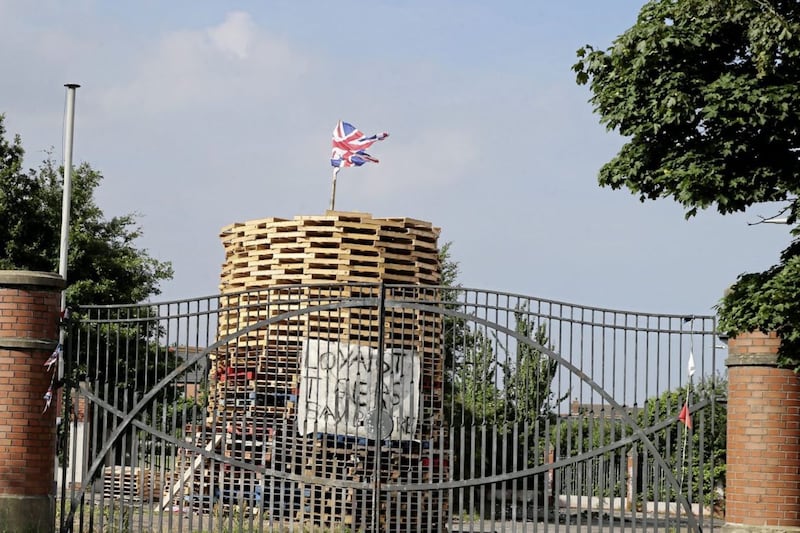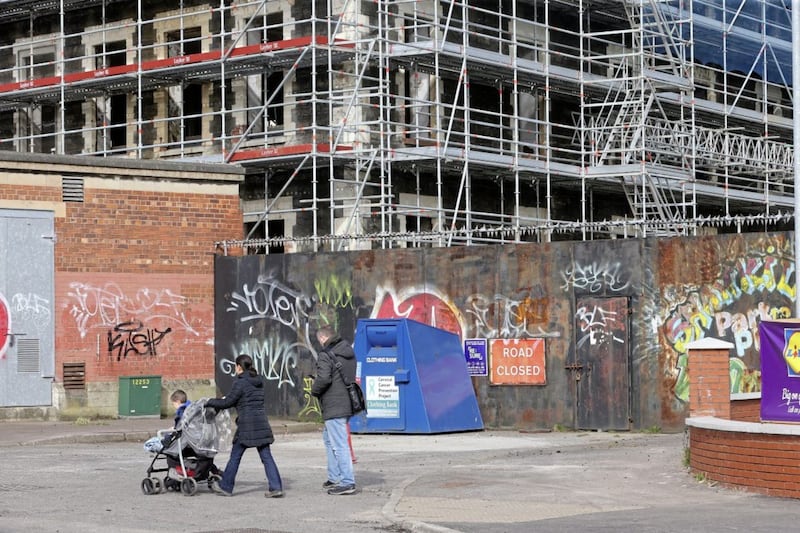A report has highlighted the risks to young people of growing up at interface areas in Northern Ireland.
The research assessed the issues which affected children growing up in places of "high religious segregation or interface communities".
It found the risk of harm and violence may have negative impacts upon their development and future prospects.
The joint report was carried out by Queen’s University Belfast, University of Liverpool’s Institute of Irish Studies and the University of Notre Dame, Indiana and produced for the Office of the First Minister and Deputy First Minister.
It found there is a need to "solve violence and anti-social behaviour problems at interfaces through interventions".
The authors looked at a series of risks faced by young people linked to both sectarian and non-sectarian violence, alcohol and illegal drug use and wider behavioural problems.
The report found many of their lives are negatively affected by risks tied to violence within and between communities.
The more trust and interaction they had in a family relationship, the less likely they would be of engaging in risky behaviour.
Professor Peter Shirlow from University of Liverpool said they found "links between emotional and mental well-being and engagement in sectarian and other anti-social behaviours and crime".
"We also observe that those who engage in sectarian behaviour tend to identify much more strongly with being Catholic or Protestant than those who never or rarely engage in such activity," he said.
"Although youth and children generally experienced the same level of sectarian violence against them, their reaction to it was different.
"Those who had good family relationships were those less likely to respond to those experiences.
"Therefore what is interesting is that in terms of engaging in anti-social or sectarian behaviour is the link with mental well-being, youth adjustments problems and crucially family relationships.
"This would suggest that in terms of tackling issues of risk within interface communities, it is important to assist families to deal with risk, anger, youth adjustment and emotional and mental health issues.
"This is a departure from other ideas that concern how best to tackle sectarianism in such communities."
Dr Clare Dwyer from QUB said: "What is found here is that the link to identity, sectarianism and violence is related to family cohesion, emotional well-being and levels of risk aversion.
"This research provides a platform for the development of responses to ensure these risks are eradicated or at the very least diminished."








